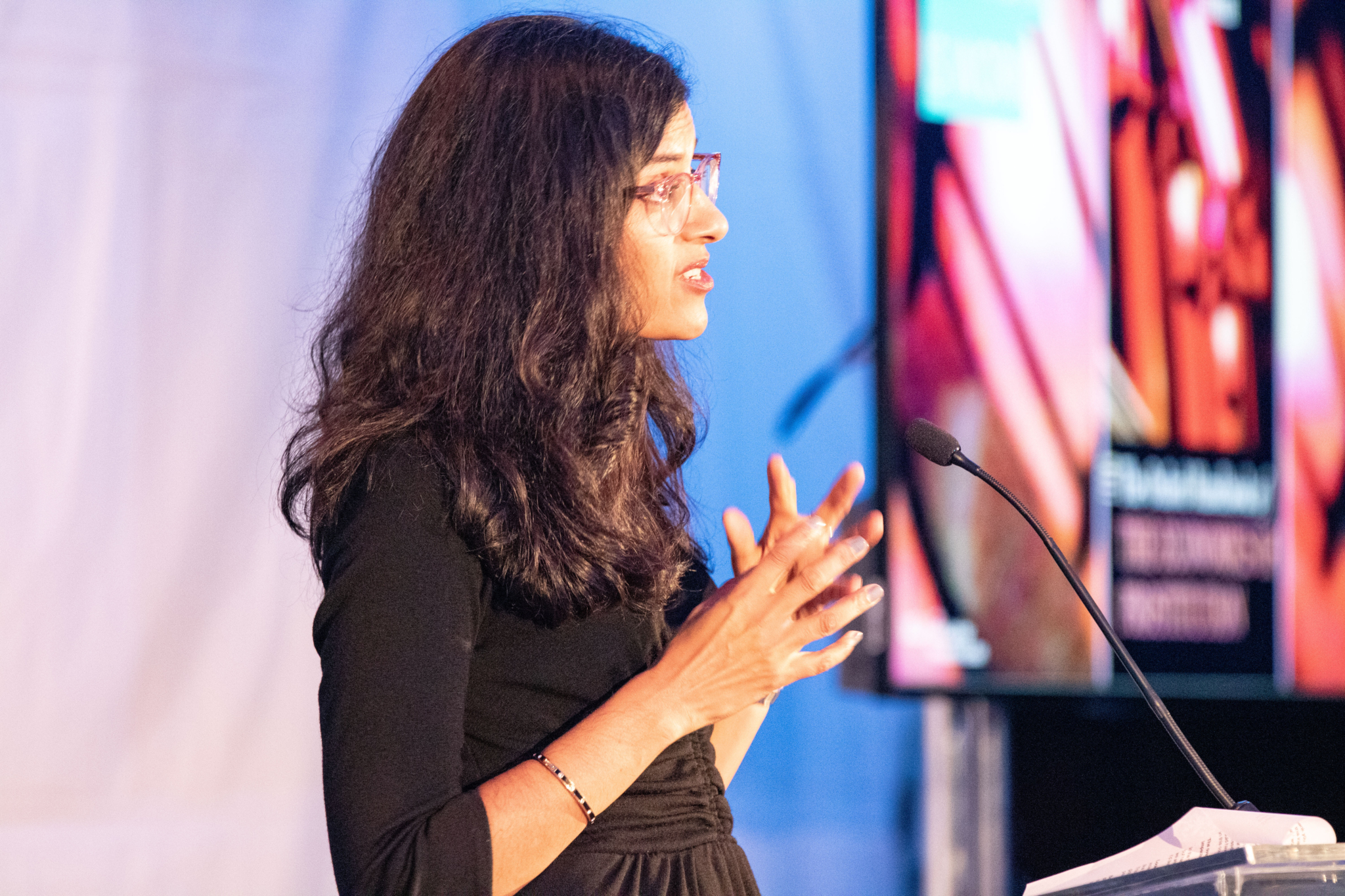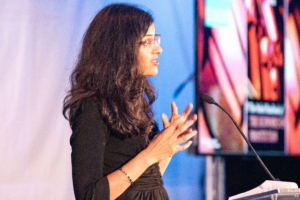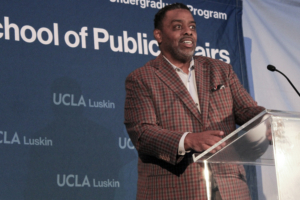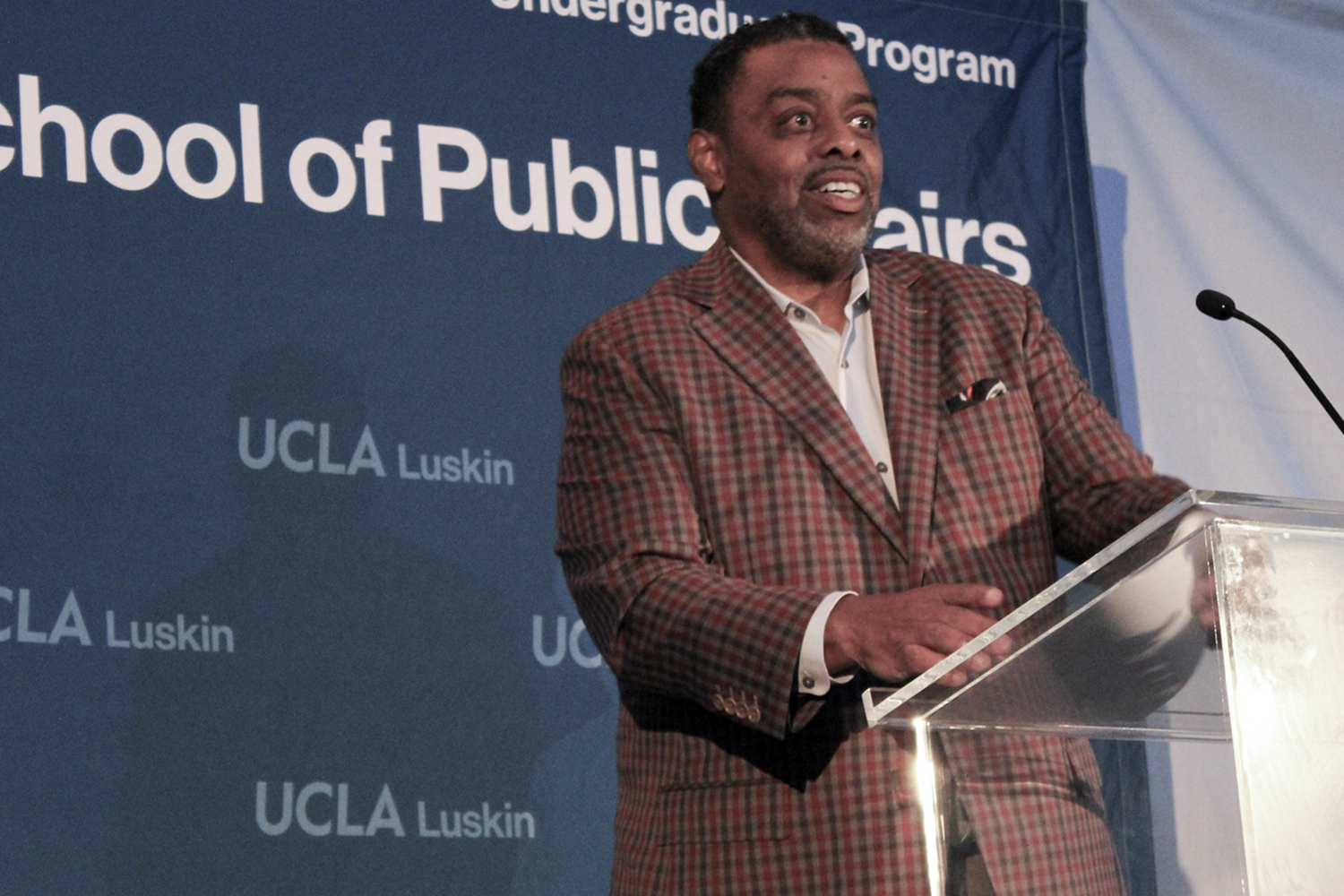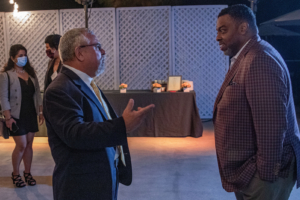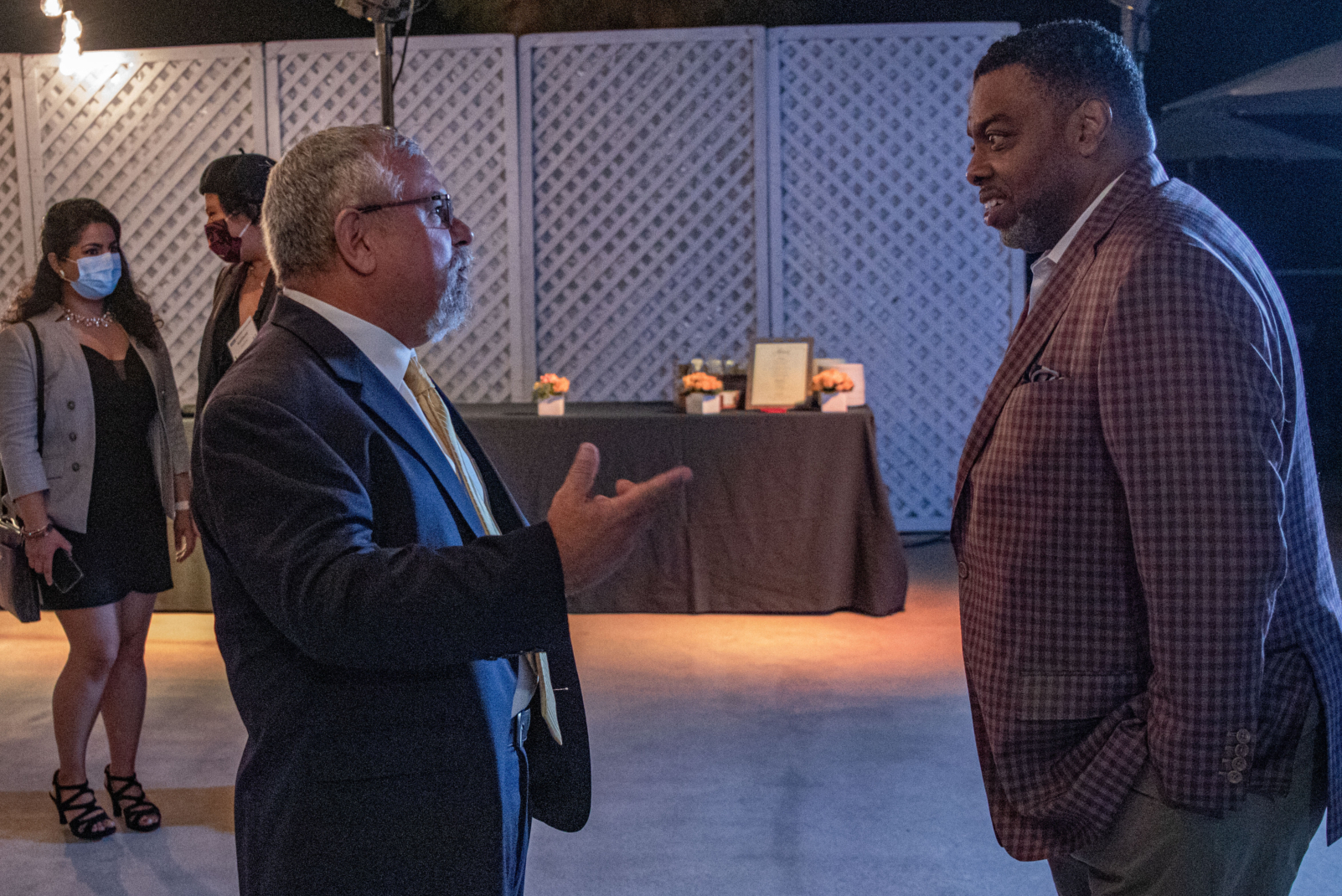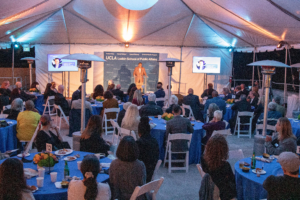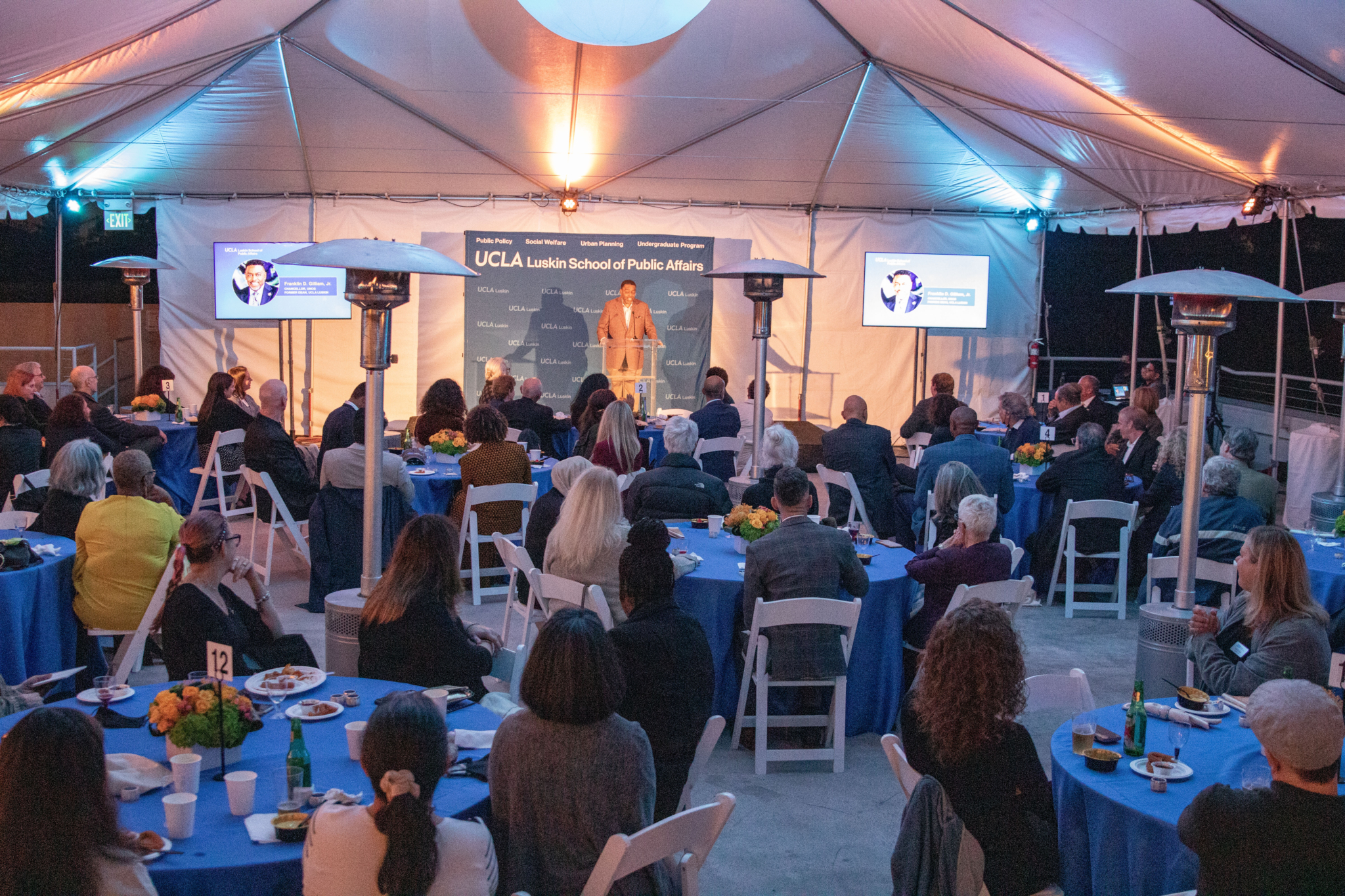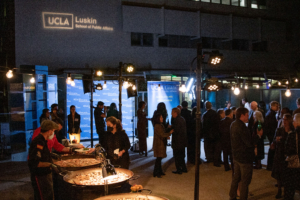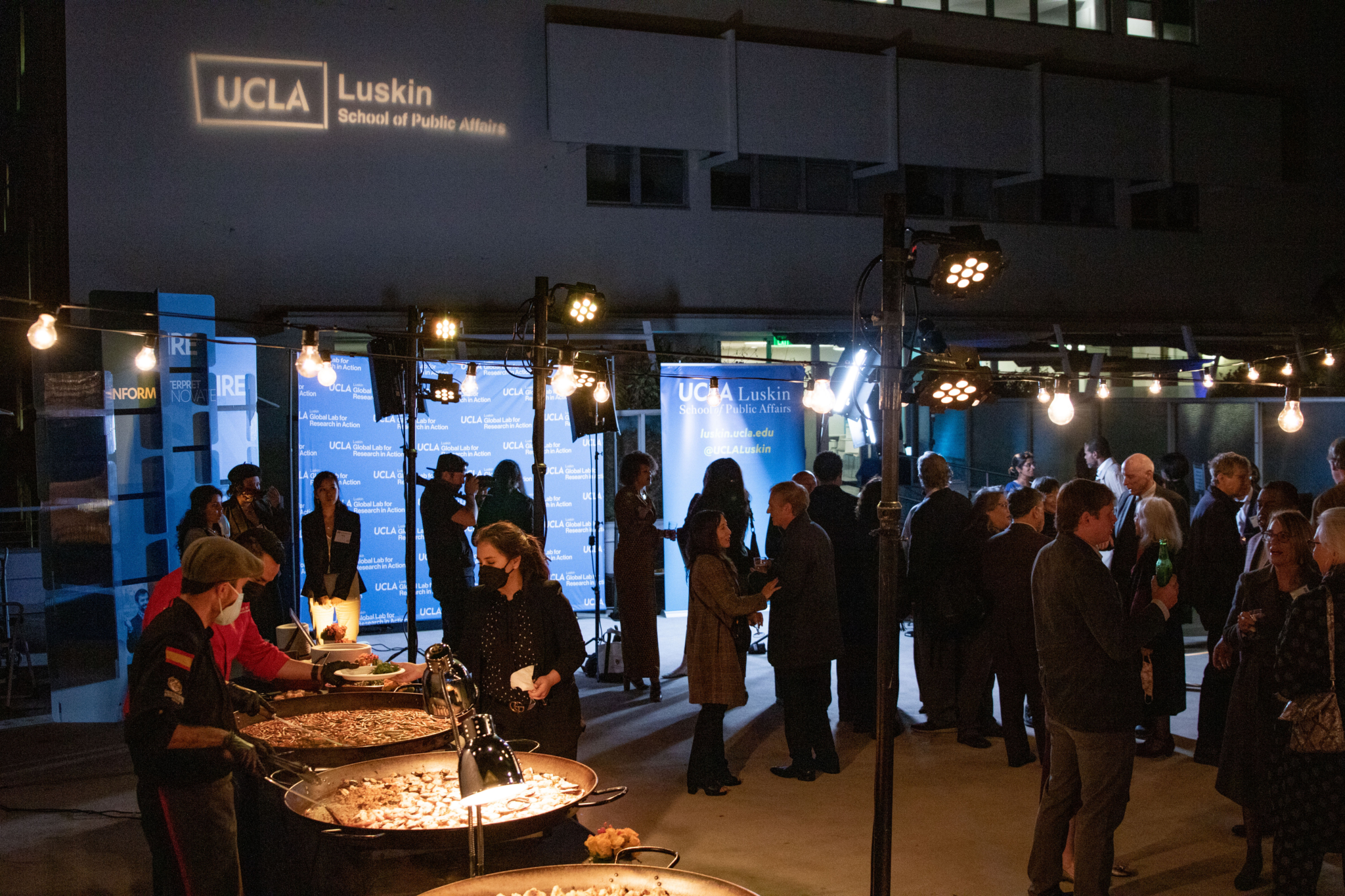The Dollars and Sense of Growth More faculty, more students, more research — yes, growth is good, but it does come with a price tag
By Les Dunseith
The Luskin School of Public Affairs has been growing — quickly.
- The faculty is far larger than it was just five years ago — 35 ladder faculty then, 59 now (with three more hires pending).
- Half-a-dozen additional research centers have been added or fully funded during that time.
- The undergraduate public affairs major has skyrocketed from zero to 428 majors and pre-majors since spring 2018. Another 167 undergraduates are working on a minor.
Make no mistake, numbers like these are very good news. But such growth comes with a price tag, and dealing with that financial reality didn’t get any easier amid the economic uncertainty of the COVID-19 pandemic.
How to pay for it all?
It helps that enrollment in UCLA Luskin’s graduate degree programs is up across the board. A total of 551 master’s students, a record number, are enrolled this academic year. Revenue from fees paid by these professional school students helps offset some of the associated costs of educating more people, such as hiring additional instructors and funding more graduate research fellowships. From a budget standpoint, such fees are also beneficial because they are not part of state appropriations and thus not impacted by any cuts from Sacramento.
It’s also true that adding undergraduate students brings in revenue from tuition. Generally speaking, tuition money flows to the university as a whole, not directly to the Luskin School, but additional funding tied to the undergraduate program has been put to good use at UCLA Luskin to support educational activities in undergraduate classrooms.
A portion has also been directed toward the graduate students who act as teaching assistants.
Rowena Barlow, chief financial officer, said total support received by the Luskin School’s students has risen 72.4% over four years. Teaching assistantships include a tuition waiver in addition to salary, meaning that many graduate students today are paying less for a master’s degree than they would have if the undergraduate degree did not exist.
On the negative side of the ledger, adding the undergraduate program also led to the hiring of many new faculty, which has increased salary costs. But many of the new additions have contributed to another growing source of funding — research contracts and grants.
“Grant proposals and research awards have grown exponentially,” Barlow said, increasing up to 60% since Gary Segura became dean. In the most-recent fiscal year, UCLA Luskin was awarded 124 grants totaling $23.2 million, nearly double the 66 grants totaling $11.2 million in 2017-18. And just three months into the current fiscal year, researchers at the Luskin School had already received contracts and grants totaling more than $13.1 million.
Grants are especially important to faculty and their associated research centers, and as the number of such entities has grown, so has their funding. In the last fiscal year, academic research and advocacy entities, along with related training programs, brought in 72 awards — 58% of the School’s total. Barlow said those grants totaled more than $18.5 million — 80% of all contract and grant funding at UCLA Luskin.
“The numbers are stunning,” said Segura, who credited the dedication of Barlow’s team in Financial Services with coping with a steadily increasing workload as new research centers have come aboard.
“There’s no handbook,” Segura said. “There’s no campus resource center for new center startups.”
Another vital funding source not tied to taxpayer support is private donations, particularly endowments like the gift from Meyer and Renee Luskin in 2011 that led to the renaming of the School. The Luskins recently fulfilled the remainder of that gift and subsequent endowments totaling $54 million, and the full amount is now earning the interest that funds ongoing educational activities such as student fellowships and scholarships, some faculty research efforts and the Luskin Lecture series. A portion of the Luskin endowment is also earmarked specifically to faculty recruitment and retention, Barlow noted.
“Competing for faculty is our biggest budget challenge,” Segura said. “Our faculty are successful. And the more successful they are, the more other schools come knocking.”
Even the generosity of the Luskins extends only so far, however. Several priority needs remain.
Jocelyn Guihama, director of administration and experiential learning for the undergraduate program, mentioned that many students reported working multiple jobs to support their families amid the economic turmoil of the pandemic.
“Since most of the internships that we provide are unpaid, removing the necessity to hold down a job or jobs — by funding more scholarships so that students can focus on their capstone and academics — would be the ideal,” she said.
Segura said gifts that benefit students are always welcomed, and he mentioned another ongoing need that potential donors might not think about — gifts that directly support doctoral students.
“Doctoral fellowships are hugely valuable,” said Segura, not only for the students themselves but indirectly for the entire School because those who earn Ph.D.s at UCLA typically go on to positions at other universities. Many refer potential students to UCLA. Some cooperate with their former professors on new research projects. And having alumni professors distributed widely within academia helps boost the School’s reputation, which drives academic rankings.
Growth at the Luskin School is ongoing, and Segura noted that two more research entities are now in the startup phase — one focusing on childhood bullying, and the other relating to the complexities of gay male sexuality. Both are looking for a benefactor.
Ultimately, today’s UCLA Luskin is a place where bold ambitions might occasionally outpace resources, and the financial challenges can seem daunting at times. Even so, managing the cost of success is a good problem to have.


